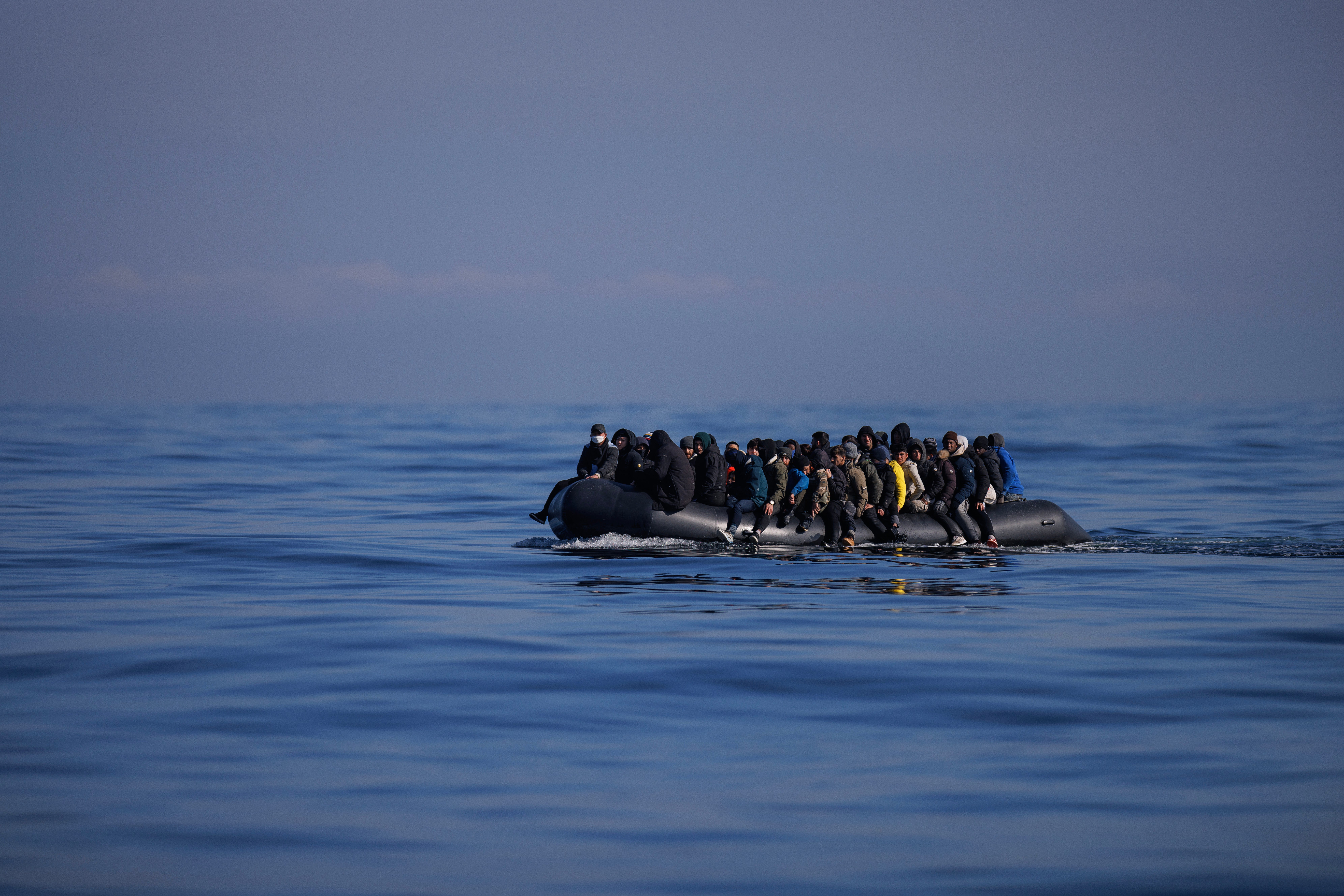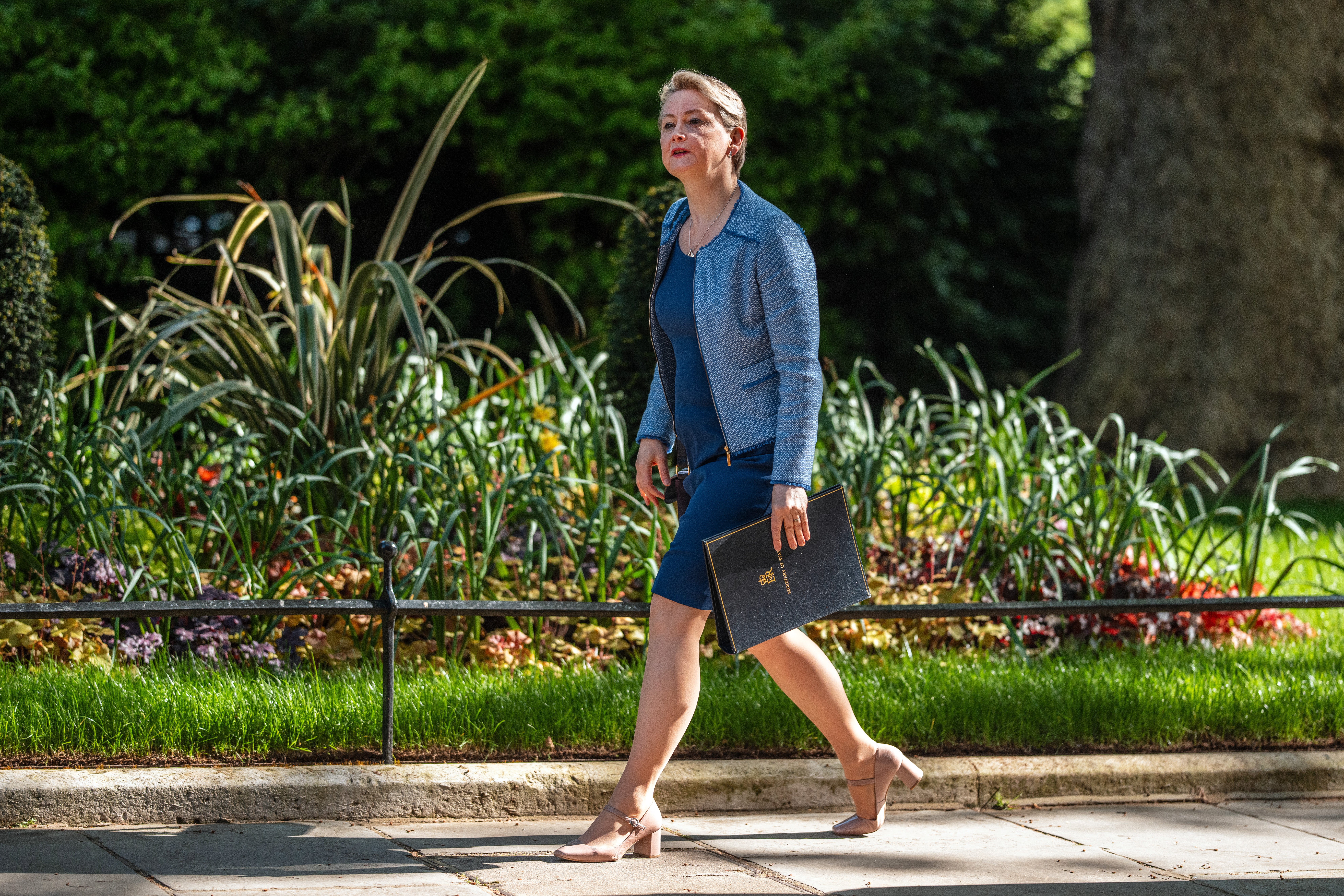ARTICLE AD BOX
Rules that make it almost impossible for small boat refugees to become a British citizen have been hit by a legal challenge, The Independent can reveal.
New guidance issued in February stated that anyone who enters the UK illegally having made a dangerous journey, such as via a small boat in the Channel or by hiding in a lorry, will “normally” be refused citizenship. The toughened-up rules apply regardless of how long has passed since the person entered the UK.
Three refugees, who have indefinite leave to remain in the UK, have now filed a legal claim challenging the move. The Home Office is expected to defend the policy, likely leading to a clash in the courts over the legality of the changes.
The claim, which is being led by law firm Duncan Lewis, argues that the changes unlawfully discriminate against refugees and breach the Equality Act 2010.
The changes in the policy potentially affect tens of thousands of people who have already been granted settled status in the UK. Charities warned they could have a “devastating impact on rape survivors and their families” and penalises trafficking survivors.

At the time, the Home Office said that the strengthened measures “make it clear that anyone who enters the UK illegally, including small boat arrivals, faces having a British citizenship application refused”.
Previously, refugees who arrived in the UK by irregular routes would have to wait 10 years before being considered for citizenship. The Refugee Council estimates the new rules could prevent over 70,000 refugees from obtaining British citizenship.
Separately, under plans published by the Conservatives on Tuesday night, Kemi Badenoch’s party would try to automatically deport anyone who arrives in the UK illegally. The draft legislation also proposes stripping indefinite leave to remain status from migrants who start to claim benefits or who fall below certain income thresholds.
Maya Esslemont, director of the charity After Exploitation, said: “Exploiters often use threats, force or coercion to make modern slavery survivors cross borders without leave. Yet, this policy dismisses the reality of survivors, punishing victims rather than protecting them.
“After overcoming all odds to report modern slavery and comply with the UK’s complex immigration processes, survivors of trafficking and modern slavery seeking British citizenship deserve a chance to have their case heard fairly, not based on a presumption of bad character which is linked to the way they entered the UK or the journey that they took to get here.”
Emily Burnham, caseworker at Women Against Rape, said that its research had found that at least 70 per cent of women who have been forced to flee their countries have suffered rape and other gender-based violence.

She added: “This policy risks creating a two-tier society where some people will be denied the rights that others take for granted”.
Carita Thomas, at the Anti-Trafficking and Labour Exploitation Unit, said the changes would impact a large number of survivors of trafficking.
She warned: “Fear is already spreading among survivors at this change, many of whom hoped to become British after years of struggle through the UK trafficking and immigration systems and after integrating into life in this country”.
Jeremy Bloom, consultant solicitor at Duncan Lewis Solicitors, said: “The changes to the good character policy are misguided, unlawful and impractical. This policy potentially affects the tens of thousands of people whose asylum claims were admitted to be considered in the UK, who have been recognised as refugees because of the persecution they faced in their countries of origin, and who have already passed all the necessary tests of their character to be granted settled status in the UK.”
The changes also impact victims of trafficking, of gender-based violence and those who are stateless, he added.
“They are only now finding out that they may face being refused British citizenship on the basis of a journey they had to make, many years ago, to escape persecution and reach safety.
“We await the decision of the court on permission and will continue to fight this policy on behalf of our clients and all those in similar situations”.
The Home Office has been contacted for comment.









 English (US) ·
English (US) ·